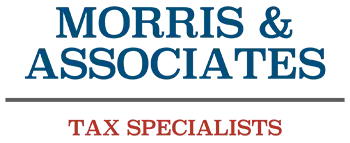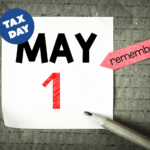Tax Deadline Extended
The IRS has announced special tax relief for individuals and businesses affected by Hurricane Helene. This includes the entire states of Alabama, Georgia, North Carolina, and South Carolina, as well as parts of Florida, Tennessee, and Virginia.
People and businesses in these areas now have until May 1, 2025, to file various federal tax returns and make any necessary payments. This includes 2024 individual and business returns normally due in March and April 2025, 2023 returns on extension, and quarterly estimated tax payments.
The IRS is extending this relief to any area FEMA declares as a disaster zone. In addition to all of Alabama, Georgia, North Carolina, and South Carolina, the relief currently covers 41 counties in Florida, eight in Tennessee, and six counties plus one city in Virginia. As FEMA updates its disaster declarations, more locations may be added. The full list of eligible areas is available on the IRS website.

Extended Filing and Payment Deadlines
The tax relief pushes back filing and payment deadlines that started as early as September 22, 2024, depending on the state. The relief period ends on May 1, 2025. Here are some key examples:
- 2024 returns due in March or April 2025 are now due by May 1, 2025.
- If you have an extension for your 2023 return, you’ll still need to file by the extended deadline, but the tax payments were due last year and won’t qualify for the extension.
- 2024 quarterly estimated tax payments due January 15, 2025, and April 15, 2025, are now due May 1, 2025.
- Payroll and excise tax returns due on October 31, 2024, January 31, 2025, and April 30, 2025, are also extended.
The IRS is also offering penalty relief for payroll and excise tax deposits. Since relief periods differ by state, you can find more information on the IRS’s Around the Nation page.
Automatic Relief and Special Circumstances
The IRS will automatically apply this relief to taxpayers with an address of record in the disaster zone—there’s no need to contact them. If your address hasn’t been updated, or if you’ve moved into the area recently, you might get a late filing or payment notice. In this case, call the number on the notice, and the IRS will adjust your penalty.
If you live outside the disaster area but can’t meet a deadline because your tax records are in the affected zone, the IRS is willing to work with you. You can contact them at 866-562-5227 for help. This includes relief workers affiliated with recognized organizations who are assisting in the disaster area. Tax preparers with clients in affected zones can also use the IRS’s Bulk Requests for Disaster Relief option.
For more details on what returns and payments qualify for this relief, visit the Disaster Assistance and Emergency Relief section on IRS.gov.







